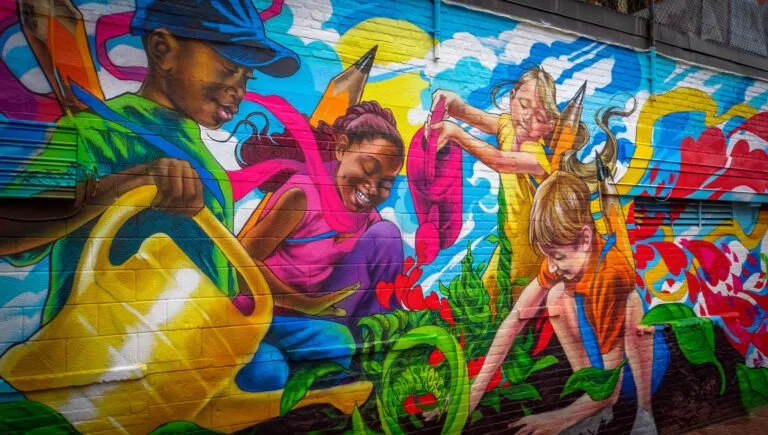Feeling like your marketing could use a refresh? Re-read these past AMT Lab articles for a fresh look at core ideas and new field trends.
#TBT: Audience Engagement
What is an Arts Organization's "Online Voice"?
On April 29th, Technology in the Arts will present the webinar "Finding Your Online Voice" featuring renown arts consultant Maryann Devine from smArts & Culture. We caught up with Maryann to talk about the idea of an arts organization's "online voice" and why it matters. What is an organization or individual’s “online voice”, and why is it important? By "online voice," I mean the tone and style of your encounters with people online. It should be an extension of the organizational voice you use elsewhere -- in your brochures, in your fundraising letters, in your advertising ... Unfortunately, most arts organizations use a bland, impersonal voice for their offline communications that's impossible to tell from their competitor down the street or across town. They mix in a little hype for the marketing writing, but so does everyone else, so everyone ends up sounding alike. How do you stand out?
Why is your online voice important? Because whether it's your web site, or your Facebook Fan Page, we're talking about spaces that have their own social norms and user behavior. It's like taking your board meeting voice into the cocktail party and then to the kitchen table at your neighbor's house. If you don't adjust your tone, people are going to look at you funny! You're not going to connect with people. And that's why you're online in the first place, isn't it?
How can we take stock of our online voice? You can take an inventory of all the places where your organization has an online presence. For example:
- your web site
- your email newsletter
- your blog
- your Twitter account(s)
- your Facebook Fan Page
- your custom social network
- forum spaces where your staff or volunteers participate in an official capacity
- blogs where your staff comments, on behalf of the organization
Then ask yourself:
- How do your online interactions sound next to your offline communications?
- Do they all sound like they're coming from the same organization, or do they seem wildly different?
- How do people online respond to them?
In the webinar, we'll talk about how to sound like YOU (the organization) and still strike the right tone for the online space.
How will this upcoming webinar help artists and arts managers to refine their online voice to better meet their goals? Getting closer with the people who love what you do -- that's a strategy that supports fundraising, ticket sales, awareness building -- just about any goal I can think of that might be on an artist or arts manager's agenda. A distinct and -- dare I say it? -- authentic online voice helps people find YOU and listen to you instead of tuning you out, like they do with most of the other organizations and businesses that are vying for their attention. When they know it's YOU, they'll WANT to pay attention.
April 29 -- 2:00pm-3:30pm Eastern -- "Finding Your Online Voice" -- Register today for $25
Like a Moth to a Podcast
I've just discovered and started listening to The Moth podcast. The Moth, for those of you who don't know, is a non-profit storytelling organization that brings in people - actors, playwrights, comedians, poets, personalities, and the average Joe - to tell a story from their own lives. No notes. Just a performer, a story, a microphone, and an audience. The Moth has several different live performance series and programs around the country. Now, The Moth has been around since 1997, but I'd never heard of them until a few days ago. Why? Because 1) I live in Pittsburgh, instead of New York or LA, 2) I'm not hip, and 3) I often struggle to get my recommended daily allowance of culture.
Point is: I found them eventually. I found The Moth through iTunes. I found them through their podcast.
And now? I know for a fact that I will continue to listen to the podcast. I've enjoyed their podcast so much, I'm considering buying CDs and other schwag through their site. I’m writing a blog about them. I’ve told two friends about them. And so on...
It is so very important to have as many points of entry into your organization and its services as possible, and a quality podcast can be one. We’ve got a podcast tutorial here on Technology in the Arts. There are tons of resources and guides out there. It is worth the effort, the equipment, the navigation of the waters of rights and copyright, and the time to create a new point of entry to your organization to gather fans you never knew you had, like moths to a flame.







